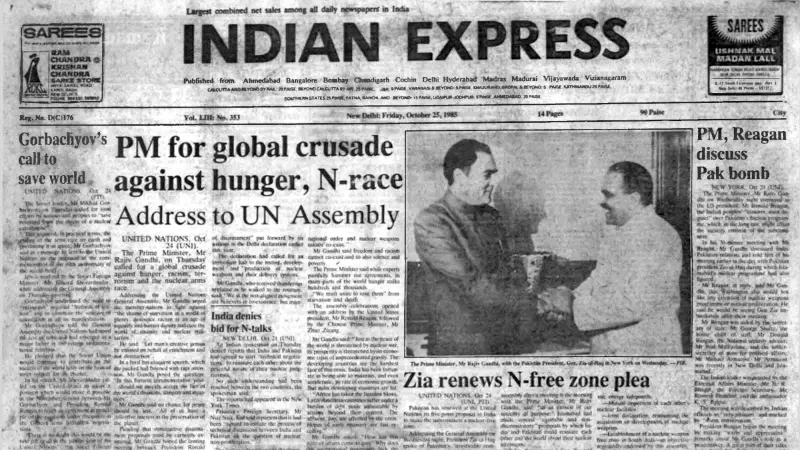
On October 25, 1985, a young Prime Minister Rajiv Gandhi took the podium at the United Nations General Assembly and delivered a speech that would resonate through decades of global counter-terrorism efforts. His address came at a critical juncture in international relations, establishing India as a formidable voice against one of the world's most pressing security challenges.
A Visionary Address Ahead of Its Time
Fresh into his tenure as India's leader, Gandhi articulated a comprehensive framework for combating terrorism that remains remarkably relevant today. He emphasized that terrorism wasn't merely a security issue but a fundamental threat to democratic values and international peace. His speech highlighted several key principles that would later become cornerstones of global counter-terrorism strategy.
The Core Arguments That Shaped Global Discourse
Gandhi's address made several compelling points that challenged the international community:
- Universal condemnation of terrorism: He argued against any justification for terrorist acts, regardless of political cause
- International cooperation: Emphasized the need for collective action beyond bilateral agreements
- Addressing root causes: While condemning violence, he acknowledged the importance of resolving underlying political grievances
- Protection of civilian lives: Stressed the indiscriminate nature of terrorist violence and its impact on innocent populations
India's Growing International Stature
The 1985 speech marked a significant moment in India's foreign policy evolution. Gandhi positioned India not just as a regional power but as a global voice with valuable insights into security challenges. His approach combined moral authority with practical policy suggestions, reflecting India's unique position in the international community.
The Legacy That Endures
Four decades later, Gandhi's prescient observations about the transnational nature of terrorism and the need for coordinated international response seem almost prophetic. The frameworks he advocated for have gradually taken shape in various UN resolutions and global counter-terrorism initiatives.
Today, as nations continue to grapple with evolving security threats, the principles outlined in that 1985 address serve as a reminder of India's early and consistent stance against terrorism. The speech established a foundation that subsequent Indian governments have built upon in international forums.
Rajiv Gandhi's UN appearance wasn't just a diplomatic formality—it was a strategic positioning of India as a serious participant in global security discussions. His arguments anticipated many contemporary debates about balancing security concerns with human rights and addressing the complex drivers of political violence.





